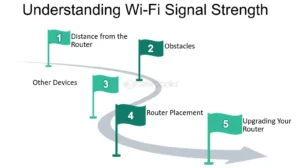Since the cost of owning property is always rising, it makes sense to raise the rent each year to account for those cost increases. But how much is too much? How can you raise the rent without losing your tenants?
The answer depends on your state and local laws along with the current market. It also depends on how long it’s been since you last increased the rent. Tenants expect incremental, steady increases, but will be caught off guard if you haven’t raised the rent in years and suddenly it doubles, even if it’s still below market rate.
In this article, we’ll explore how to raise the rent without losing your tenants.
Work with a property manager
Raising rent requires more than just sending out notices of an increase. You need the right timing, good communication, and legal compliance. A good property manager makes the whole process easier and less of a liability.
For instance, Green Residential, a full-service Apartment Property Management in Houston, helps Texas landlords implement rent increases by staying on top of the market, preparing legally compliant lease addendums, and handling tenant communications with care. From delivering proper notice to explaining the increase, property managers know how to prevent tenant backlash while keeping you protected.
Know your local market
Rents are different in every neighborhood, and it’s essential to set your prices right. Even if you own luxury property, the market will be different in each area. To figure what you should charge, track rent trends and know what the going rents are in your neighborhood. Compare your property with similar units (bedrooms, amenities, lease terms) to set fair rent prices.
Set fair, predictable increases
Being transparent with predictable rent increases will build trust with your tenants and can pay off with lease renewals and long-term retention. When implementing rent increases, aim to be gradual and consistent. According to statistics, 56.28% of landlords increase rent by 0-5% at lease renewals, while 19.76% opt for 5-10% raises. Periodic, small 3-5% bumps are less jarring than a 10-15% jump all at once.
Here’s how the math looks for the tenant with a gradual increase:
Monthly rent: $2,000
Yearly increase: 5%
New monthly rent (year 1): $2,100
New monthly rent (year 2): $2,205
New monthly rent (year 3): $2,315.25
Here’s how the math looks for the tenant with an abrupt increase:
Monthly rent: $2,000
Sudden increase: 15%
New monthly rent: $2,300
If you set the tone for sudden, big increases in rent, tenants will worry that you’re going to do it every year, and many will move out.
Explain why you’re raising the rent
Although it may seem like you don’t owe your tenants an explanation for raising the rent, it helps to explain your cost increase (property tax hikes, insurance premium increases, HOA fees, and other property-related expenses). A simple explanation helps tenants understand that you’re not just being greedy or arbitrarily increasing the rent.
Sync rent raises with lease renewals
You can’t increase the rent in the middle of a lease, so line up your rent increases with lease renewals. In some states, you can raise the rent as often as you want for month-to-month tenants with just one month’s notice. However, that strategy will create vacancies. It’s understandable to raise the rent once per year, but make sure you raise it appropriately so you don’t have to implement another increase three months down the road.
Offer incentives
Tenants don’t like rent raises, but an increase doesn’t have to feel like a punishment. When you raise the rent, offer incentives like long-term pricing, like a multi-year lease with slight annual increases spelled out ahead of time in the lease. Your tenants will get stability and certainty, and you’ll still get secure revenue.
Perks like waiving one late fee or providing a minor amenity upgrade can go a long way in softening the blow of a rent increase. You can also offer lease renewal bonuses, like a gift card or free cleaning service.
Plan for turnover
Not all tenants will stay forever, and that’s okay as long as you’re prepared. Prepare for turnover and plan your rent increase accordingly. Turning over a rental unit isn’t the time to give discounts. Your expenses can be in the thousands after accounting for cleaning, marketing, and lost rent. Price your units at full market value – new tenants are more likely to accept higher rent.
Be strategic about rent raises
Market-based rent raises won’t cause tenant turnover unless your increases are too high. With incremental rent increases, some perks, and good communication, you can implement rent raises while retaining your best tenants.











